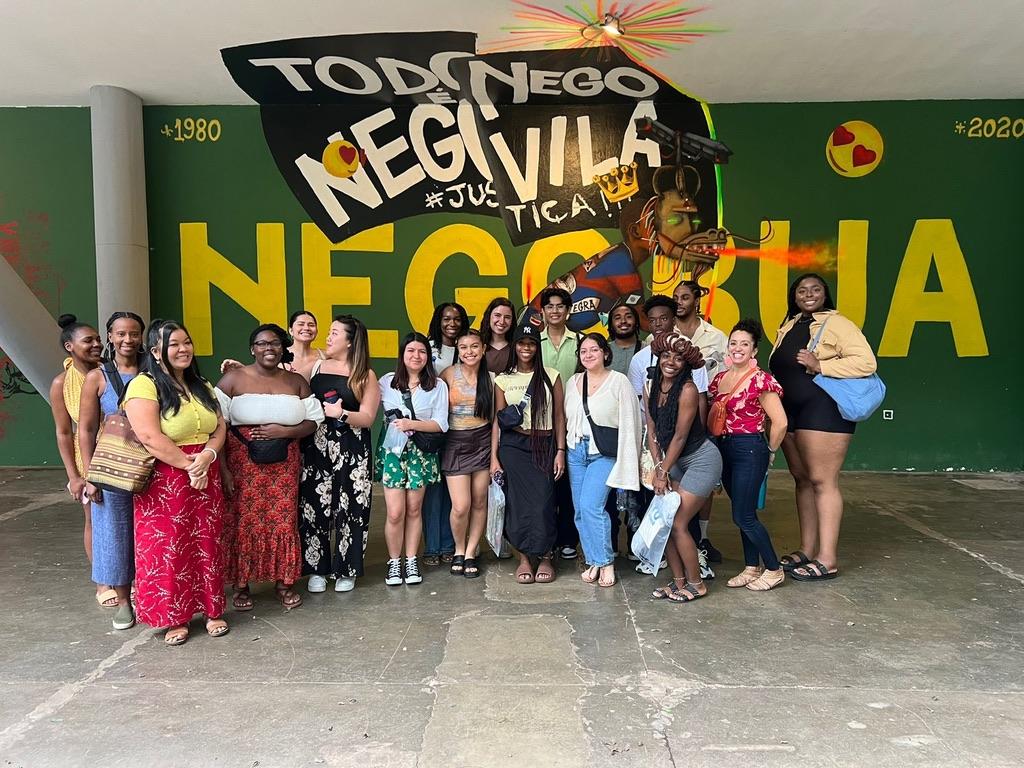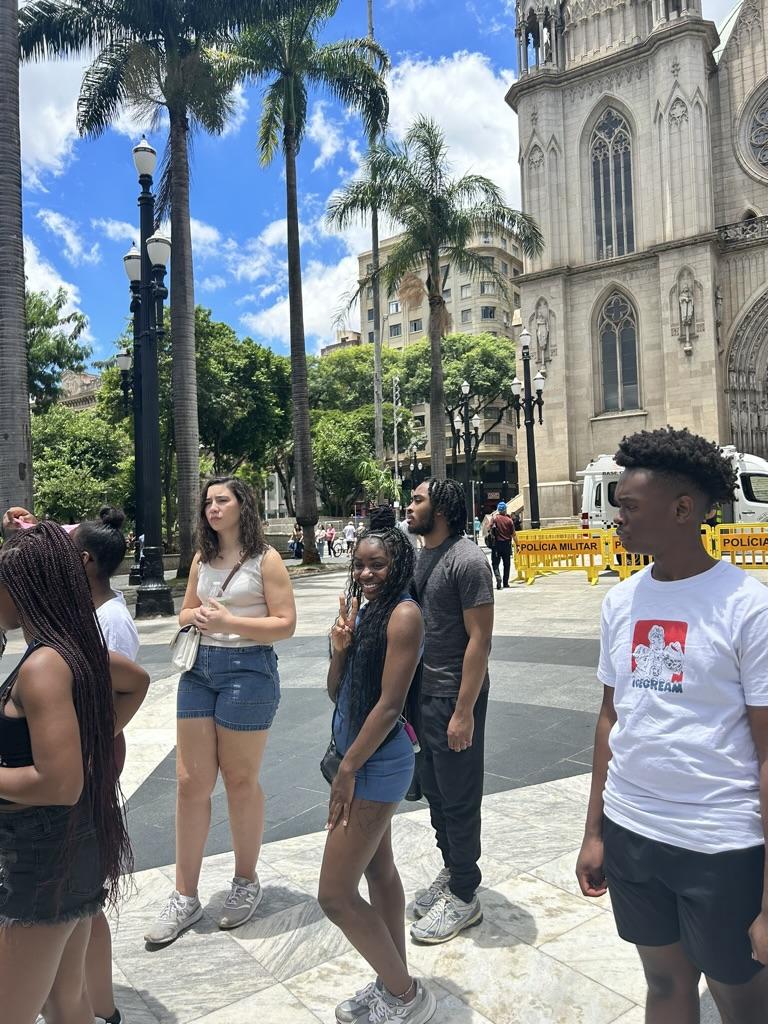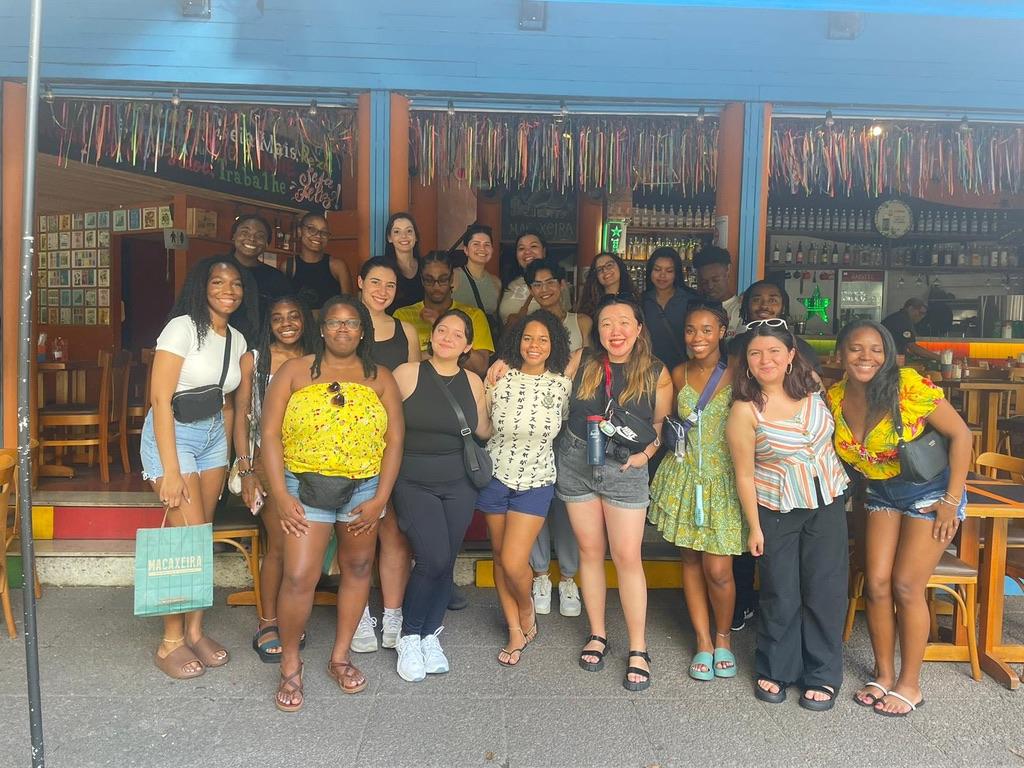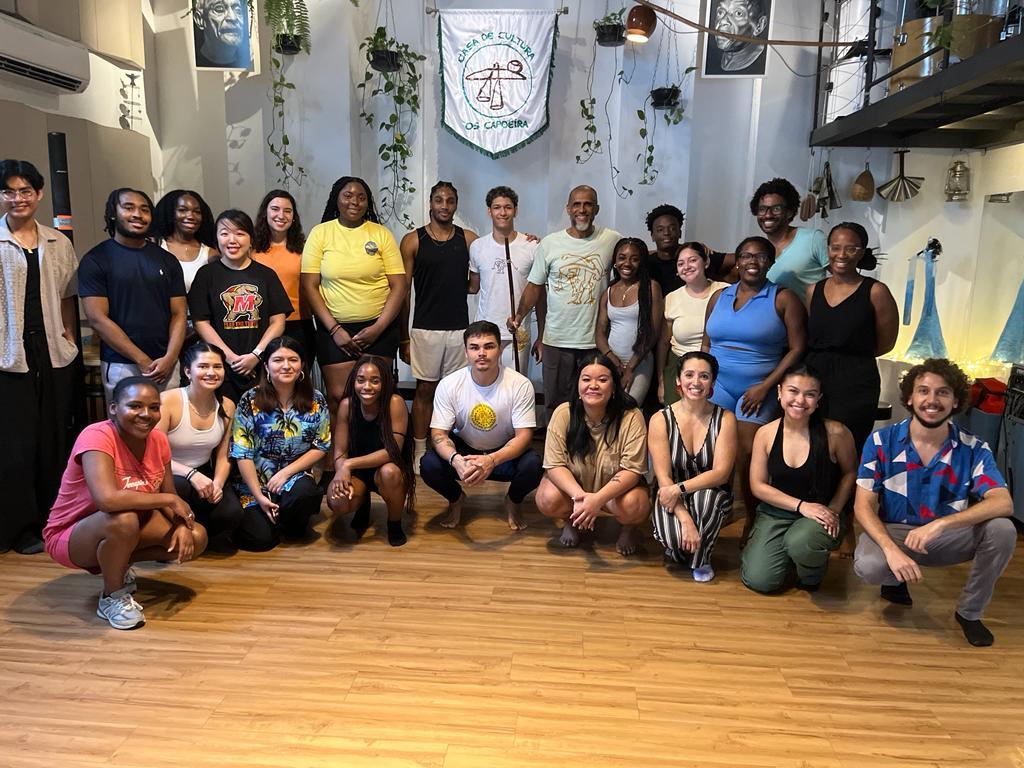
In January of 2024, SPH’s Assistant Dean for Undergraduate Education, Dr. Nicole Cousin-Gossett, embarked on a transformative journey to confront systemic and institutional racism. With a groundbreaking approach aimed at addressing one of the most pervasive issues in public health, Nicole took a diverse group of fourteen undergraduates and three graduate students to São Paulo, Brazil for her course entitled “Racism as a Public Health Crisis in the US and Brazil.” Purposefully designed as an accessible study abroad experience, the students came from extremely diverse backgrounds that are often underrepresented in study abroad; the majority of the students were Pell grant recipients, first generation college students, students who had never left the US before, and Students of Color.
Nicole’s idea for the course came from her past instructional experiences at both UMD and other US institutions, where she teaches about race and racism as social constructs using a comparative lens. Given that she typically compares the racial stratification of America to that of Brazil and other countries, Nicole chose to take her students to São Paulo for more in-depth analysis. With a blend of lectures, student-led discussions, and experiential learning, Nicole says that teaching this new course “gave me the opportunity to bring actual Brazilian voices into the classroom discussion and see firsthand how race and racism impacts well-being.”
The course comes at a crucial juncture in Brazil's history, where racial health disparities remain alarmingly prevalent. Despite being a country celebrated for its cultural diversity and vibrant traditions, Brazil continues to grapple with the deep-rooted legacy of slavery and colonialism, which has systematically marginalized Afro-Brazilians and Indigenous populations. Much like here in the US, they are disproportionately affected by poverty, inadequate healthcare access, and higher rates of chronic illnesses.
“While on the trip I began to understand deeply that racism can affect one’s overall well-being.”

Nicole’s class emphasized understanding how racism has historically and currently prevented access to health care and well-being, and how Afro-Brazilian communities are resisting racism through the arts, activism, and community-level interventions. It served as a platform for students to engage in candid discussions, examine historical injustices, and analyze contemporary issues affecting marginalized communities. One of the students reflected that “while on the trip I began to understand deeply that racism can affect one’s overall well-being.”
At the core of Nicole’s curriculum is the acknowledgment of racism as a public health crisis. According to the American Public Health Association, in the United States, 22 states, 94 counties, and 149 cities have declared that racism is a public health crisis. By recognizing racism as a determinant of health, Nicole challenges students to confront biases and actively work towards dismantling oppressive systems, empowering them to become agents of change. She shares that “the most rewarding part of the experience was learning from the Afro-Brazilians who are doing the long and often unrewarded work of improving the well-being of Black and other marginalized groups in Brazil. The students and I were inspired to do better in giving back to our communities both at home and globally.”
"Through our short time in São Paulo, I continue to make connections with our approach to a similar problem on American soil."

By inviting guest lecturers from diverse backgrounds to share their work, Nicole demonstrated the importance of centering the voices of marginalized communities in public health conversations. This inclusive approach ensured that her students gained a comprehensive understanding of the complex issues at play. One student shared that “through our short time in São Paulo, I continue to make connections with our approach to a similar problem on American soil, spreading the word of the difficult battle that Black and Brown Brazilians face to improve their well-being at home.”
Nicole’s course doesn’t just inspire students; it serves as a powerful reminder that transformative change is possible, one classroom at a time, even across borders.
Read more about this program in an article by Maryland Global.
